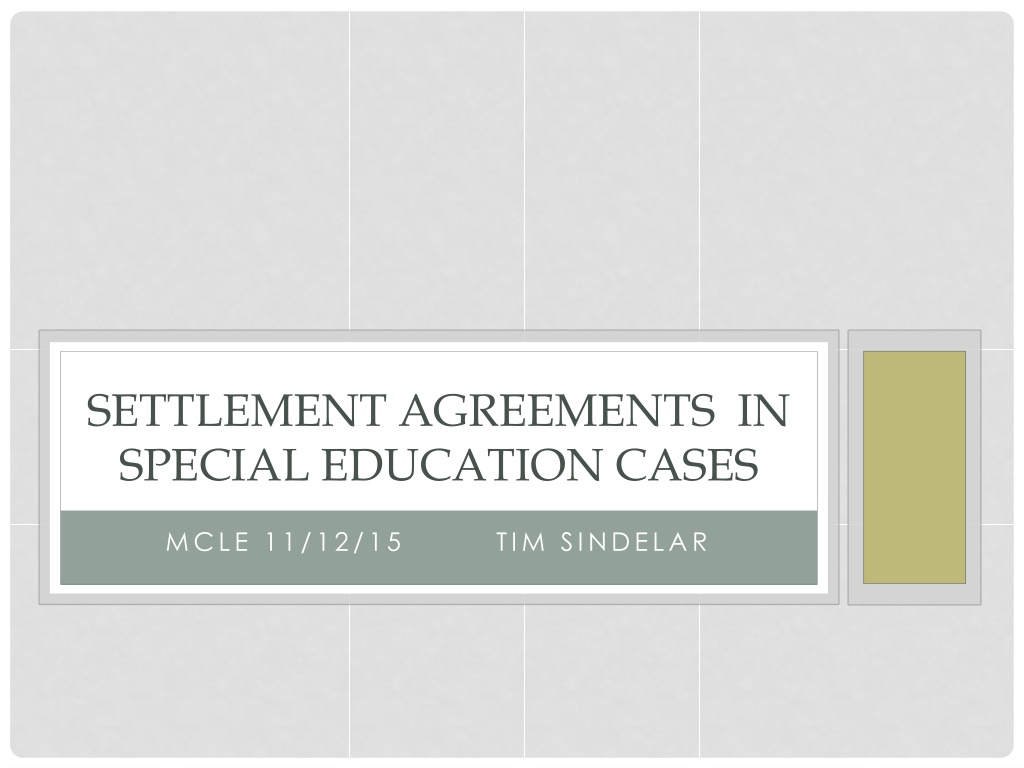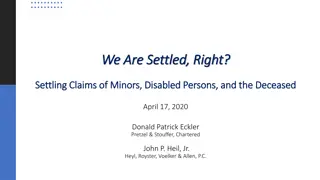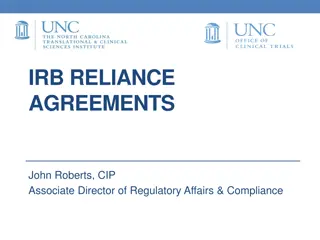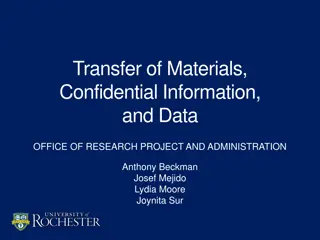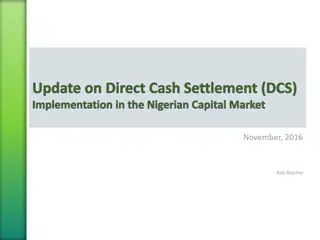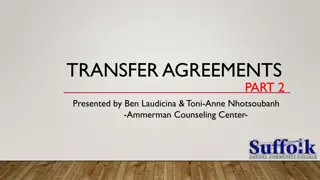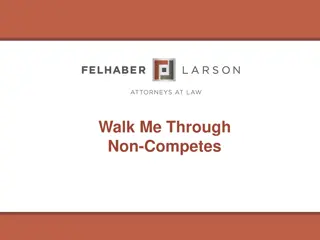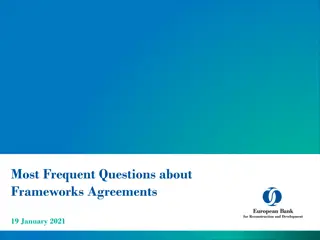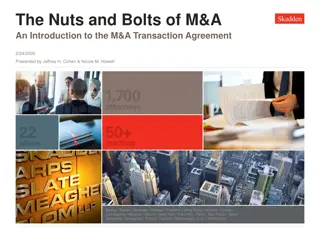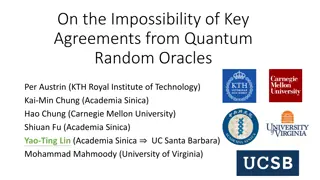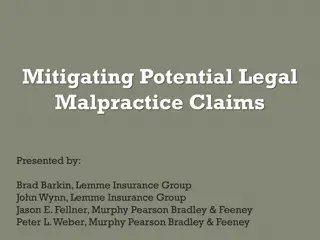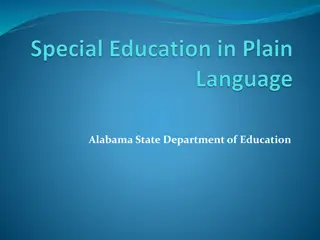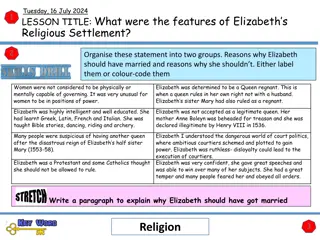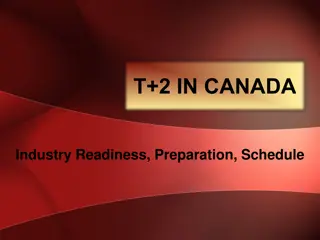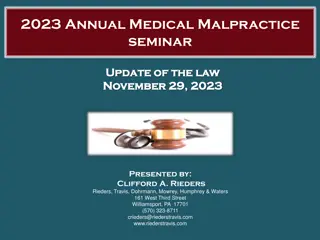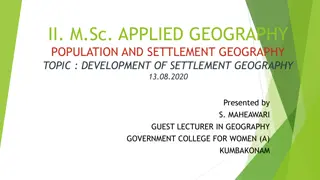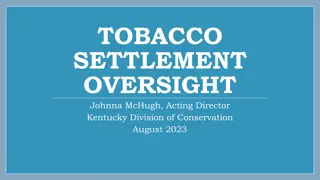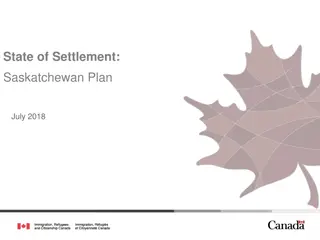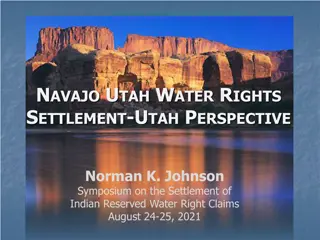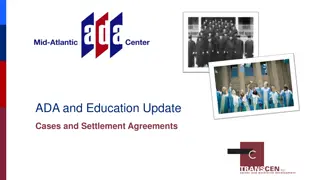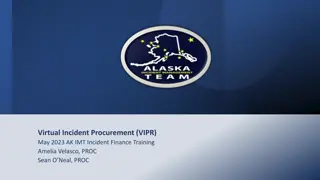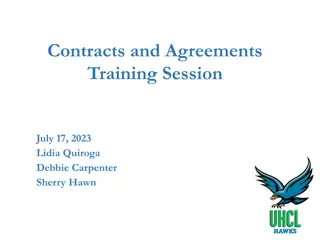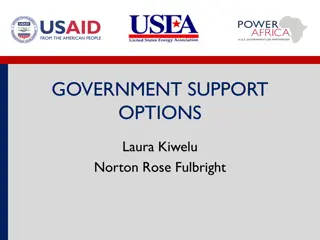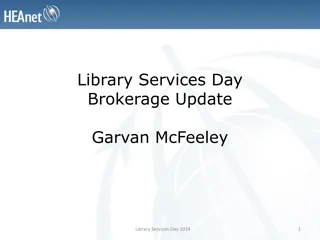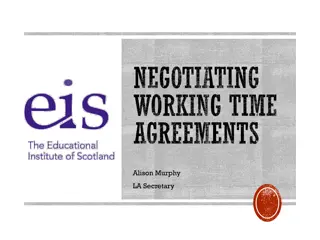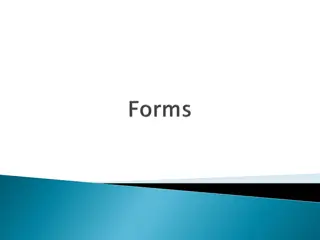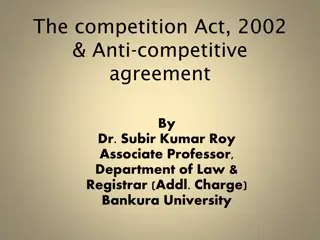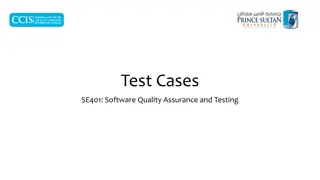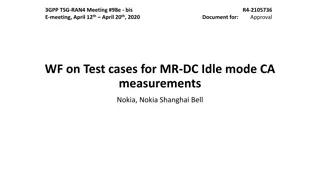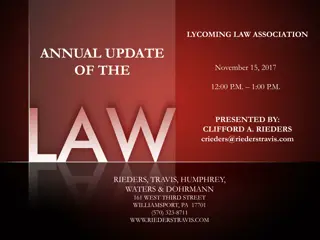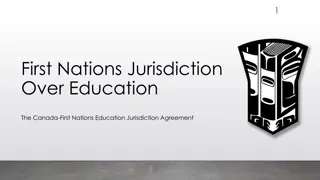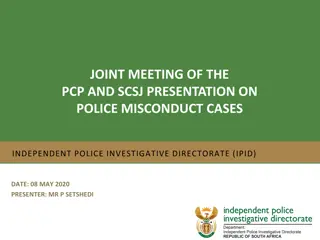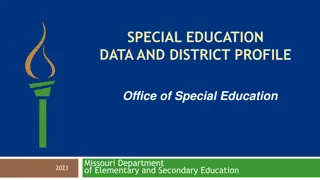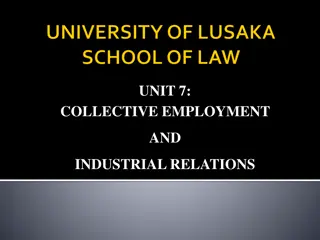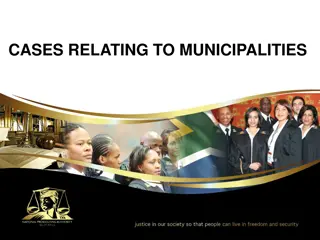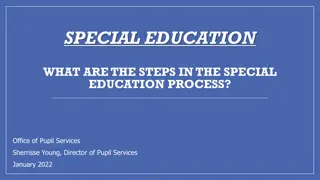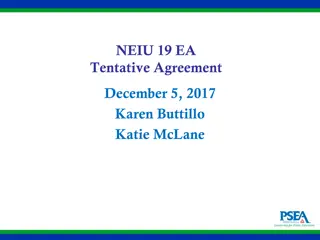Understanding Settlement Agreements in Special Education Cases
Delve into the complexities of settlement agreements in special education cases through the lens of the South Kingstown v. Joanna S. case in the First Circuit Court. The case revolves around disputes over independent educational evaluations, occupational therapy evaluations, and psychoeducational evaluations. Learn about the procedural history, court decisions, jurisdictional issues, and the significance of evaluations in the context of the IDEA framework.
Uploaded on Oct 09, 2024 | 0 Views
Download Presentation

Please find below an Image/Link to download the presentation.
The content on the website is provided AS IS for your information and personal use only. It may not be sold, licensed, or shared on other websites without obtaining consent from the author. Download presentation by click this link. If you encounter any issues during the download, it is possible that the publisher has removed the file from their server.
E N D
Presentation Transcript
SETTLEMENT AGREEMENTS IN SPECIAL EDUCATION CASES MCLE 11/12/15 TIM SINDELAR
SOUTH KINGSTOWN V. JOANNA S., 773 F.3D 344 (1ST. CIR. 2014) First major First Circuit case regarding settlement agreements in special education; Dispute regarding independent educational evaluations occupational therapy evaluation and psychoeducational evaluation; Court notes that evaluations are integral to the way IDEA works both eligibility and content of the protections IDEA offers ;
SO. KINGSTOWN PROCEDURAL HISTORY Request for Independent Evaluation in February 2012 through due process complaint (which also sought private school placement); Due Process complaint requested EIGHT new evaluations; Settlement entered into with agreement for the Wolf school and four evaluations to be performed by the School District in April 2012; District performed evaluations in April; in October, 2012 parent requested TEN new evaluations, including Independent evals for 4 evals school conducted in April 2012
SO. KINGSTOWN PROCEDURE CONT. So. Kingstown refused to conduct evals and filed for due process; HO found that some of District s evals not appropriate and ordered payment for OT eval and ambiguous statement re psychoed eval; School District appealed to federal District Court; District Court reversed HO decision and also found that Settlement Agreement released claims for independent evaluations First Circuit affirmed in part but remanded
SO. KINGSTOWN AGREEMENT Court finds that it has jurisdiction since it is an appeal pursuant to 20 U.S.C. 1415(i)(2)(A); And also general case law of federal courts enforcing state-law settlement agreements in federal question cases; Not res judicata as District Court (and parties) had contended the question is the scope of the Settlement Agreement ACTUAL CONTENT OF AGREEMENT NOT SPECIFICALLY DISCLOSED IN FIRST CIRCUIT OPINION
SO KINGSTOWN CHANGE OF CIRCUMSTANCES Released only through the date of the agreement; But request for psychoeducational had been before agreement so that is included; Intent of the parties is one factor in interpreting a settlement agreement; District abandoned argument that Agreement resolved all demands for evaluations through end of 2012-2013 school year; Interprets agreement to mean that release any right to additional evaluations that may have had, except when her request for one arises from a change in the conditions that prevailed at the time she signed the Agreement.
SO KINGSTOWN KNEW OR SHOULD HAVE KNOWN Agreement waived any and all causes of actions [of] which [parent] kn[ew] or should have known at time agreement signed; Unforeseeable events may give rise to unforeseeable ground for complaint; Agreement may comfortably be read to preserve requests premised on new circumstances Court cites D.R. ex rel. M.R. v. E. Brunswick Bd. of Educ., 109 F.3d 896, 898 (3d Cir.1997) for similar interpretation.
SO KINGSTOWN HO JURISDICTION Footnote 3; We need not address the separate issue whether the Hearing Officer in the course of performing her statutory duties had the authority to consider the Settlement Agreement as a defense, a question that seems to have divided lower courts. Compare J.K. v. Council Rock Sch. Dist., 833 F.Supp.2d 436, 450 (E.D.Pa.2011) (no such authority) with, e.g., D.B.A. ex rel. Snerlling v. Special Sch. Dist. No. 1, No. 101045, 2010 WL 5300946, at *4 (D.Minn. Dec. 20, 2010) (authority under at least some circumstances). Even if the Hearing Officer lacked such authority, it would not affect the authority of a federal court to conduct the review Congress authorized. Cf. Mayhew, 772 F.3d at 84 n. 4; Elgin v. Dep't of Treasury, ___ U.S. ___, 132 S.Ct. 2126, 2137, 183 L.Ed.2d 1 (2012)(explaining that courts reviewing administrative decisions have jurisdiction to consider even issues the administrative body "professed [a] lack of authority" to consider).
MICHELLE K. V. PENTUCKET, C.A. # 13-11414, 14-10071, 14-10325 (D. MASS. WOODWARD 1/16/2015 Interpretation of Agreement BSEA proceeding brought by Parent two months before Student s 18thbirthday; Agreement offered for C (minor) and A (who had just turned 18) mother indicated A would not accept agreement; Mother requested postponement of hearing and requesting status conference but none scheduled; Two months later HO issued order to show cause; Mother responded with letter that A wants name added to hearing request with Mother as representative
PENTUCKET After negotiation, agreement entered into that among other things provided that Parent would dismiss, without prejudice, BSEA case involving her daugter; Mother notified BSEA of settlement in part & asked to proceed on A s individual claim and to amend request for hearing to demonstrate that; District objected citing agreement and filed motion to dismiss; BSEA DISMISSED citing Mother being rep of A at BSEA
PENTUCKET ANALYSIS Court accepted that settlement agreement interpretation is key to resolution; BSEA (through AG) agrees that mother, as advocate, cannot settle A s case and suggests remand; Court seeks more information on the intent of the parties; December letter should have been regarded as request for hearing on behalf of A; New hearing request may be change of circumstances
PENTUCKET ON REMAND BSEA 12-8636 (FIGUEROA, 5/21/2015) Hearing held to determine intent; Mother and daughter did not participate in hearing (but father did); HO finds that the agreement extinguished mother s claims but not the students; Mother s letter requesting student s name be added to hearing Request reverted to date of original hearing request; Parents /Students claims limited by SOL going back 2 years from date of original request for hearing
BSEA JURISDICTION TO ENFORCE AGREEMENTS Hearing Officer Decisions Jurisdicti on No /Yes In RE: Student v. Milford Public Schools BSEA # 16-01412; Revere Public Schools BSEA #15-07485 (Berman 7/27/15) (mediation agreement) No Monson Public Schools, BSEA # 10-5064 (8/23/2010); Foxborough BSEA #10-6287 (6/28/10) Yes In Re: Student v. Pentucket Regional School District BSEA # 12-8636; Boston Public Schools BSEA #15-03625; In re: Student v. Lynn Public Schools BSEA # 15-00643 Yes Brookline Public Schools, BSEA #12-3430 (2/7/12); No In Re: Worcester Public Schools, BSEA # 1302473 (1/23/13) Sara Berman Lindsay Byrne Rosa Figueroa Raymond Oliver Catherine Putney- Yaceshyn Amy Reichbach No decisio ns No decisio ns Ann Scannell
MILFORD PUBLIC SCHOOLS BSEA # 16- 01412 (BERMAN 12/13/15) Parents sought an addendum to Settlement Agreement; District moved to dismiss HOLDING: the BSEA does not retain subject matter jurisdiction over contract law disputes, cannot grant relief under contract law claims, and has no particular expertise in interpreting and applying contract law Motion to Dismiss granted HO does note that Parents had not sought relief for denial of FAPE and could proceed on that basiis with new hearing request
REVERE PUBLIC SCHOOLS BSEA #15- 07485 (BERMAN 7/27/15) Parent seek services beyond those specified in mediation agreement; District files Motion to Dismiss; HO rules that it is well settled that a BSEA mediation agreement, signed by all parties and fully implemented, precludes a subsequent BSEA hearing on the issues resolved by the agreement. To conclude otherwise would undermine the relevant provisions of federal and state special education law as well as the underlying legislative purpose and public policy favoring informal, voluntary resolution of special education disputes. Motion to Dismiss granted
BOSTON PUBLIC SCHOOLS BSEA #15- 03625 (FIGUEROA Re Impossibility of Settlement Agreement; Motion to Dismiss based on Settlement Agreement is denied Case turns on interpretation of clause: In the event that [Student] [did] not complete his placement at the placement as outlined above for any reason, and [Student ] and his Parents continue to reside in Boston, then, upon notice by Parents or the placement to Boston, Boston shall have the right and responsibility to convene a Team meeting an develop an IEP for [Student], make referrals to alternative private day schools on [Student s] behalf, and to otherwise provide [Student] and his Parents with all rights afforded to students with special education needs who reside in Boston
LYNN PUBLIC SCHOOLS BSEA # 15- 00643 (FIGUEROA, 3/13/15) Parents had entered into two Settlement Agreements; Sought hearing to set aside second agreement; HO finds jurisdiction to enforce Settlement Agreement (but notes that if parents demonstrated change of circumstances might not enforce agreement); Lynn s Motion to Dismiss WITH PREJUDICE granted
MIXED AUTHORITY RE: JURISDICTION H.C. v. Colton-Pierrepont Cent. School Dist . , 2009 WL 2144016 (2 nd Cir. 2009) ( due process hearing before an IHO [impartial hearing officer] was not the proper vehicle to enforce the settlement agreement but IHO had responsibility to consider the settlement agreement to the extent it might have been relevant to the issue before him, i.e., whether H.C. s 2006-07 IEP provided her with a FAPE ); A.R. v. New York City Department of Education , 407 F.3d 65, n.13 (2 nd Cir. 2005) (although the terms of a special education Hearing Officer s decision are enforceable by a court, [Hearing Officers], as is common in administrative procedures, have no enforcement mechanism of their own ).
FINDING JURISDICTION Woods ex rel. T.W. v. Northport Public School , 2011 WL 1230813 (W.D.Mich. 2011) (indicating that it was appropriate for hearing officer to consider settlement agreement for purposes of exhaustion); S.B. v. District of Columbia , 2011 WL 1740115, *8 (D.D.C. 2011) ( agreement reflects the educational choices that the key parties agreed were best for S.B. hearing officer did not err in relying upon the settlement agreement in determining which related services Plaintiffs were entitled to receive reimbursement for ); D.B.A. ex rel. Snerlling v. Special School Dist. No. 1, Minneapolis, Minn. , 2010 WL 5300946, 4 (D.Minn. 2010) (Hearing Officer may review and interpret a settlement agreement for the purposes of determining whether it concerns the identification, evaluation, or educational placement of the child, or the provision of FAPE to the student); Springfield Local School Dist. Bd. of Educ. v. Jeffrey B ., 2010 WL 4272607, 2 (N.D.Ohio 2010) (notwithstanding IDEA s reference to enforcement of mediated settlement agreements in court, it is undeniable that any breach of the settlement agreement is inextricably intertwined with the core decisions made by [a Hearing Officer] regarding the identification, evaluation or educational placement of a child with a disability, or the provision of FAPE to the child and therefore the Hearing Officer has jurisdiction to consider the agreement); Washington v. California Dept. of Educ . 2010 WL 4157139, 6 (E.D.Cal. 2010) (where settlement agreement addressed student s special education claims and dispute has not been considered by the administrative due process agency, dispute must be returned to administrative due process for failure to exhaust administrative remedies under the IDEA).
GEORGETOWN PUBLIC SCHOOLS AND LANDMARK SCHOOL BSEA # 14-08733 (OLIVER 8/27/14) In Ruling on Summary Judgment that Landmark may expel Student, HO relies, in part, on [standard] waiver of rights contained in Settlement Agreement with District Parents expressly waived their rights under state and federal special education law The Settlement Agreement was incorporated into IEPs developed at Landmark
LOWELL PUBLIC SCHOOLS & DCF, BSEA # 12-1912 (CRANE, 10/19/11) Ruling on Motion to Stay Put Waiver in Settlement Agreement was not clear and specific and therefore would not be enforced: See W.B. v. Matula , 67 F.3d 484, 498, 67 F.3d 484 (3 rd Cir. 1995) ( while we do not hold that settlement agreements which include a waiver of related claims in the IDEA context are per se invalid, we will apply the more searching standards reserved for waivers of civil rights claims and therefore we will apply the more searching standards reserved for waivers of civil rights claims and therefore will inquire whether the agreement is clear and specific as to a waiver ); Cavalieri v. Copeland , 2008 WL 4083030, *6 (E.D.Pa. 2008) (court may consider whether the waiver language is clear and specific ); Rochester Community School Corp. v. Honeywell, Inc ., 2007 WL 2473464, *6 (N.D. Ind. 2007) ( waiver must be clear and specific ); Somoza v. New York City Dept. of Educ .; 475 F.Supp.2d 373, 388 (S.D.N.Y. 2007) (court considered whether the language waiving an IDEA claim was clear and specific); Doe ex rel Doe v. State of Hawaii Dept. of Educ ., 351 F.Supp.2d 1021, 1025 (D.Hawaii 2004) (same).
WAYLAND PUBLIC SCHOOLS BSEA # 14-03324 (CRANE, 2/6/14) Mediation Agreement provided that Wayland agreed to send a packet to the TEC School in Newton and, if Student were accepted there, Wayland agreed to fund this placement for three school years. Parents agreed to visit the TEC School, with Student, in order to allow the TEC School to meet Student and assess the appropriateness of the program. The parties agreed that if Student were not accepted at the TEC School, they would return to mediation to further discuss an appropriate placement and IEP for Student
WAYLAND - NO ENFORCEMENT OF AGREEMENT Within the mediation agreement, there is nothing that states (or even suggests) that by offering to fund a placement at the TEC School, Wayland satisfied all of its obligations to Parents and Student under state and federal special education laws. The agreement does not address, either explicitly or implicitly, Wayland s responsibilities under the circumstances that in fact developed that is, that Parents would decline the placement after visiting the TEC School and finding it to be inappropriate. Thus, the agreement does not state (or even suggest) that by determining the TEC School to be inappropriate and declining to place their daughter there, Parents gave up procedural or substantive protections under state and federal special education laws. In no sense does the agreement purport to be a full resolution of all of Parents possible special education claims against Wayland.
RELEASE OF INFORMATION: CHAMPA C hampa v. Weston Public Schools, 39 N.E.3d 435 Settlement agreements between public school and the parents of a student who required special education services were education records under Family Educational Rights and Privacy Act (FERPA), and thus personally identifiable information in such records was not a public record, and was not subject to disclosure under public records law. Family Educational Rights and Privacy Act of 1974, 513(a)(4)(A), 20 U.S.C.A. 1232g(a)(4)(A); M.G.L.A. c. 4, 7, cl. 26(a); c. 66, 10.
CHAMPA Massachusetts special education law contains provisions protecting the confidentiality of the educational records of students with disabilities who receive special education services, but records relating to students are not confidential once all personally identifiable information is removed; redaction of such information may render the particular document a public record that must be disclosed on request under the public records law. M.G.L.A. c. 66, 10; c. 71B, 1 et seq.
DRAFTING CONSIDERATIONS Clear and Specific Beware of Unintended Consequences Be Sure You are Ready to Settle Consider Interim Agreements Minors Never Darken the Door provisions
